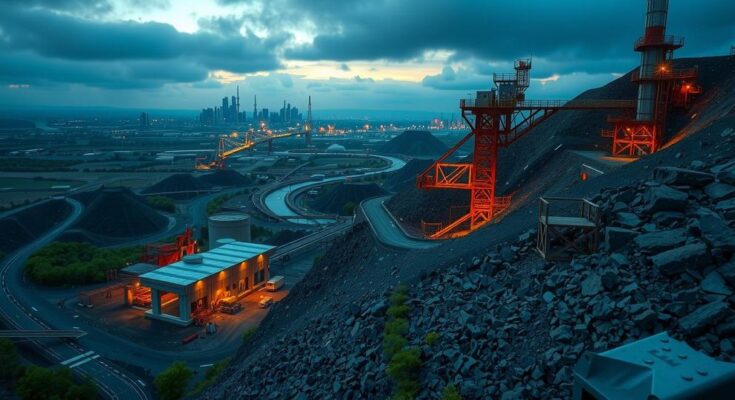Europe’s reliance on cobalt from the DRC poses ethical and strategic challenges for achieving climate neutrality. With a significant portion of processing controlled by China, European lawmakers emphasize the need for sustainable and socially responsible sourcing practices while recognizing the complexities of dependency and historical exploitation of local resources. Recent legislative reforms in the DRC aim to improve investment conditions amid competing global interests.
The ongoing cobalt boom in the Democratic Republic of the Congo (DRC) has significant implications for Europe, which relies heavily on these resources in its transition to a climate-neutral economy. European Parliament member Marie-Pierre Vedrenne emphasizes the need for the EU to secure sustainable and socially responsible supplies of raw materials. However, with two-thirds of the world’s cobalt sourced from the DRC and the processing largely dominated by China, Europe faces a complex dependency relationship. Miners like Paul Zagabe Nbanze in DRC’s Kolwezi region illustrate the human cost of cobalt extraction, raising ethical concerns about labor practices and environmental impact. Furthermore, despite efforts to establish a more equitable partnership, many African nations assert that the dynamics of these relationships must prioritize their interests. Recent legislative changes in the DRC have opened avenues for private investment, inviting European stakeholders but also igniting debates on exploitation and the need for genuine collaboration. Overall, while European initiatives indicate a growing interest in responsible engagement, China remains a dominant player in the cobalt supply chain, complicating Europe’s aspirations to lead in ethical sourcing and sustainable partnerships.
Cobalt is a crucial element in the production of batteries, particularly in the context of Europe’s goal to achieve climate neutrality by 2050. The DRC is the leading producer, responsible for approximately two-thirds of the global supply. However, the geopolitical landscape complicates matters, as the majority of cobalt processing occurs in China, creating a dependency that European countries are grappling with. This situation has historical roots; colonial legacies and exploitative practices have long impacted local populations, and contemporary movements are pushing for more respectful and mutually beneficial international relations.
In summary, Europe’s cobalt dependence on the DRC presents both opportunities and challenges. While there are efforts to establish a fairer, more sustainable partnership that respects local needs and promotes ethical mining practices, the dominance of China in cobalt processing complicates Europe’s ambitions. African nations, particularly the DRC, are increasingly vocal about their expectations for collaborative investments that reflect their interests, marking a shift from historical exploitation to equitable partnerships. Understanding this dynamic is crucial for navigating the future of raw materials sourcing in a globally interconnected market.
Original Source: www.dw.com




